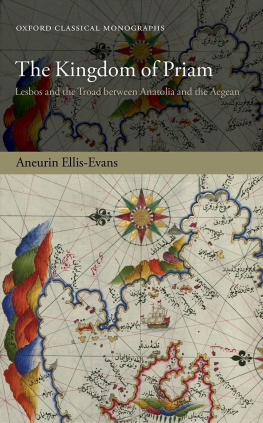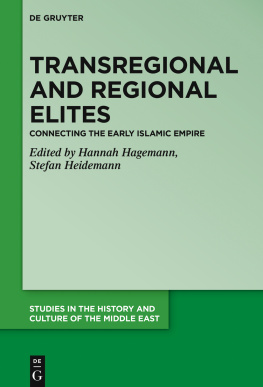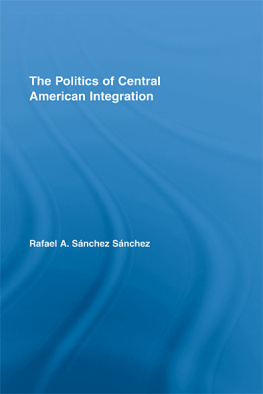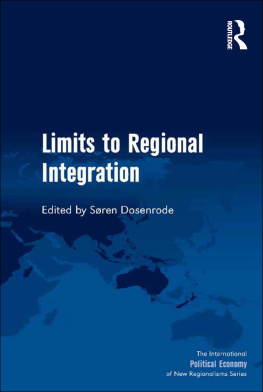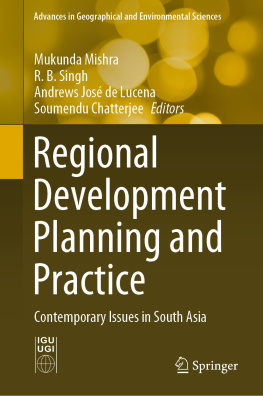Oxford Classical Monographs
Published under the supervision of a Committee of the Faculty of Classics in the University of Oxford
The aim of the Oxford Classical Monographs series (which replaces the Oxford Classical and Philosophical Monographs) is to publish books based on the best theses on Greek and Latin literature, ancient history, and ancient philosophy examined by the Faculty Board of Classics.

Great Clarendon Street, Oxford, OX2 6DP, United Kingdom
Oxford University Press is a department of the University of Oxford. It furthers the Universitys objective of excellence in research, scholarship, and education by publishing worldwide. Oxford is a registered trade mark of Oxford University Press in the UK and in certain other countries
Aneurin Ellis-Evans 2019
The moral rights of the author have been asserted
First Edition published in 2019
Impression: 1
All rights reserved. No part of this publication may be reproduced, stored in a retrieval system, or transmitted, in any form or by any means, without the prior permission in writing of Oxford University Press, or as expressly permitted by law, by licence or under terms agreed with the appropriate reprographics rights organization. Enquiries concerning reproduction outside the scope of the above should be sent to the Rights Department, Oxford University Press, at the address above
You must not circulate this work in any other form and you must impose this same condition on any acquirer
Published in the United States of America by Oxford University Press 198 Madison Avenue, New York, NY 10016, United States of America
British Library Cataloguing in Publication Data
Data available
Library of Congress Control Number: 2018957603
ISBN 9780198831983
ebook ISBN 9780192567970
Printed and bound by CPI Group (UK) Ltd, Croydon, CR0 4YY
Links to third party websites are provided by Oxford in good faith and for information only. Oxford disclaims any responsibility for the materials contained in any third party website referenced in this work.
Acknowledgements
I have incurred many debts in the course of writing this book, and so it is a pleasure to finally be able to acknowledge them here. My supervisor Peter Thonemann has been an exemplary mentor to me ever since our first tutorial in Michaelmas 2007. Throughout the long process of researching and writing my doctoral thesis and then turning it into a book he has provided me with invaluable guidance at every stage while always encouraging me to go my own way. John Ma and Graham Shipley examined the thesis on which this book is based and provided me with valuable suggestions and corrections. I have subsequently had many more conversations with John about this book, some almost as lengthy as the viva itself, and I am enormously grateful to him for his constant willingness to be a sounding board for my ideas. I was lucky to have Simon Hornblower as a book adviser, who read everything I sent him in record time, made innumerable improvements to the manuscript both large and small, and suggested the title to me.
Ben Raynor, Thom Russell, and Alex Poots read and commented upon parts or all of the original thesis, and Paul Kosmin read both the original thesis and the finished book and on both occasions offered characteristically astute suggestions. It would have been difficult to write the section on late posthumous Lysimachi in ). Although Alex Dale, Guy Westwood, and George Artley have not, I think, read a word of this book, over the years their conversation, erudition, and insights have helped me improve it in any number of ways. On Lesbos, I was fortunate to be put in touch with Nikos Dais, who guided me and Lydia around the western half of the island in July 2015 and who has taught me a great deal about the islands more recent history. I likewise owe a debt of thanks to my friends Merve Ktk and Nazl Alimen for their help with my Turkish and for answering all my questions about modern Turkey. Finally, I would like to acknowledge all the help I received from Georgina Leighton at OUP during the production process and to thank Timothy Beck for his sharp and sensitive copyediting of the text.
Only after completing the thesis did I really come to appreciate how fundamental numismatics should be to writing any kind of regional history, and as a result I began to collect the autonomous coinages of Lesbos, the Troad, Aiolis, and Mysia from the fifthfirst century bc . This vast body of evidence, now numbering c.40,000 coins in my database, has proved to be an enormously rich source of material for writing regional history. At the same time, a huge amount of basic work still remains to be done on these coinages, and it has not been possible to complete all of this and get it into print in time for this books publication. While less than ideal, I have therefore decided to include this work in progress in summary form when it makes a substantial contribution to the argument of the chapter, but readers should treat these discussions as preliminary until the studies on which they are based are properly published. In coming late to numismatics, I was lucky to have patient teachers in Jack Kroll, Richard Ashton, and Jonathan Kagan. Subsequently, I have learned a tremendous amount from Peter van Alfen, Franois de Callata, Philip Kinns, Frdrique Duyrat, Simon Glenn, and Ute Wartenberg. I am particularly grateful to Ute for the unstinting support which she and the ANS have provided to my research, and to Ute and Jon for their generous hospitality whenever I am in New York. For help with material in museum collections I would like to thank Amelia Dowler (London), Julien Oliver (Paris), Bernhard Weisser (Berlin), Klaus Vondrovec (Vienna), Helle Horsnaes (Copenhagen), Volker Heuchert (Oxford), and Aliye Erol-zdizbay (Istanbul).
As a graduate student I was lucky enough to be funded by grants from the AHRC. My travel to Lesbos and the Troad over the years has been generously funded by Balliol College, New College, The Queens College, and the Craven Fund. I am especially grateful to the Provost and Fellows of The Queens College for electing me to a Junior Research Fellowship in Classics. This provided me, above all, with the luxury of timeto think, to improve my languages, to broaden my interests, to sink weeks and months into projects which I knew would not immediately come to fruition. Funding from Queens also supported me during stays in Vienna and Berlin during which the first half of the thesis was completely re-drafted. For arranging library access and desk space for me and for making me feel welcome I would like to think Kaja Harter-Uibopuu and Thomas Corsten in Vienna and Philipp von Rummel in Berlin. Final revisions to the book were completed while I was holding stipendiary lectureships at Worcester College and at Brasenose and St Annes Colleges. It was not always easy to juggle work on the book with a full schedule of teaching, and I am indebted to both colleagues and students at all three colleges for their understanding and support. I owe a special thanks to Brasenose College for the financial support of the Jeffrey Bequest which covered the costs of securing image permissions for the book.
Throughout my studies, my wife Lydia Matthews has been a constant source of love, support, and companionship. She has put up with dusty museum storerooms, unairconditioned dolmuler, a quick walk up to the site of Alexandreia Troas in the blazing midday heat, and a great deal of Greek history, Greek epigraphy, and Greek numismatics along the way. She is, without a doubt, the most patient Roman historian I know. In writing this book I have benefited enormously from her sharp intellect and in particular from her valiant attempts to curb my natural tendency towards prolix and poorly organized argumentation. Finally, my parents Tricia and Cynan have always been generous and unstinting in their support of all my academic endeavours, and so it is to Lydia and to them that I dedicate this book.

